As the conflict in Israel-Gaza continues to escalate and the Russian invasion of Ukraine nears its third year, Abi Thomas speaks to five people who are striving to bring God’s peace in a divided and hurting world
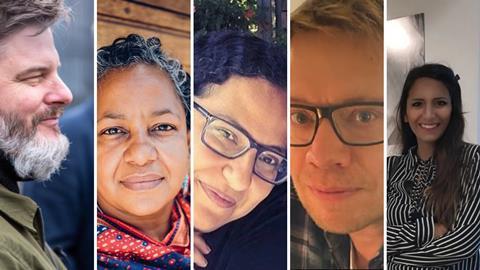
Bethlehem
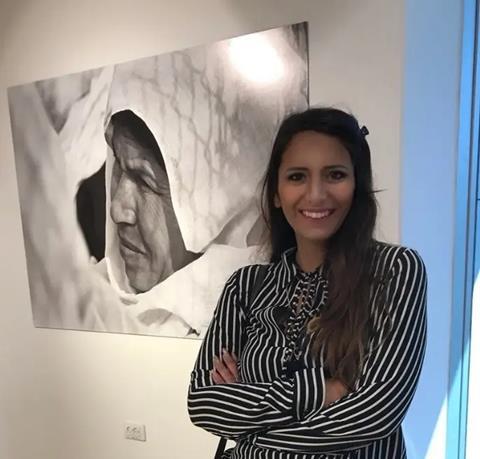
Nadine Quomsieh is programme manager for Parents Circle Families Forum, a joint Israeli-Palestinian peace organisation of over 600 bereaved Palestinian and Israeli families. She is an Orthodox Christian who grew up in America. Her family are from Bethlehem; they returned in 2009.
I was a fashion designer and I came to give courses to Palestinian women - we did the first fashion show in Palestine! I loved Bethlehem and I decided to stay even though it was scary. I wanted to learn more about the conflict so I joined a meeting for the Parents Circle Families Forum.
That meeting was very deep. Our members have all lost a family member and I found it very difficult to listen to these people, who have paid the highest price for this conflict, talking about peace. They tell their stories so honestly. We have one Christian family whose daughter died during a raid in Bethlehem. Soldiers shot at the car as they were driving home. Yet this family are now working for peace.
The message of the Parents Circle is reconciliation. We are asking for a peace treaty, because if this doesn’t stop we would have more members - and that is one thing we don’t want.
Christians are born peacemakers. But it isn’t easy, you have to set it in your heart and mind 24/7. We are attacked from within the Palestinian society for trying to make peace with Israelis, but we need to keep going. The words of 1 Peter 2:20 encourage me: “But if you suffer for doing good and you endure it, this is commendable before God. To this you were called, because Christ suffered for you, leaving you an example, that you should follow in his steps.”
Peace is looking at your child and thinking: he has a future in this country
I travel regularly between Bethlehem and Jericho. We have to cross over many settlements on the journey, and it’s really scary when we get stopped. It’s very difficult to explain to my young children, but I tell them about the mothers I work with who have lost their sons and daughters. These parents are strong when sharing their stories, but when you sit with them, you see the huge hole in their hearts.
Peace is not living in a city with trees and water and beautiful things around you. It’s looking at your child and thinking he has a future in this country. We need to feel that our children are safe.
For more information see theparentscircle.org
Northern Ireland
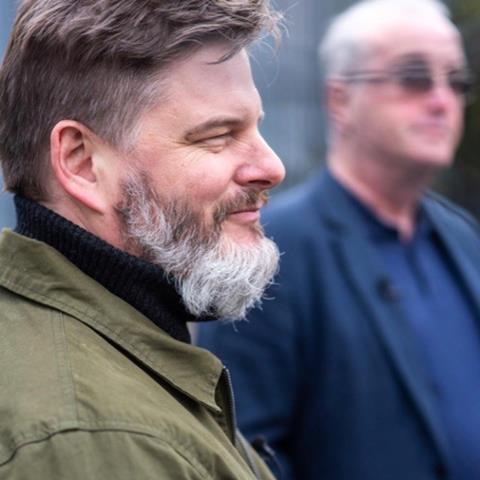
Jonny Clark is a documentary filmmaker and programme manager for public theology at the Corrymeela Community, Northern Ireland’s oldest peace and reconciliation organisation.
In 2002, aged 27, I moved to the Shankill Road, a Protestant, loyalist British road which, with the Falls Road, a Catholic, Irish Republican road, was the epicentre of the Northern Irish conflict. We started a community there, with houses that spanned both sides of the wall, offering scholarships to young people. We had South Africans, who had grown up during apartheid, talking to young Catholic kids, and these kids were saying: “That’s terrible, you should never discriminate against someone because of the colour of their skin!” This Zulu guy, Phumlani Dakile, said: “I saw you throwing bottles at a bunch of Protestant kids yesterday. Maybe you were doing exactly the same thing?”
The greatest commandment is to “Love the Lord your God”. The second is just like it: ”Love your neighbour as yourself” (Mark 12:30-31). Who is our neighbour? Jesus answered this by telling Jews a story about a good Samaritan (Luke 10:25-37), their greatest enemy at the time. If loving our neighbour is like loving God, and our neighbour is our greatest enemy, we need to ask: Who is that for each of us?
Loving our enemies is core to what it means to be a Christian
Most of us see what’s happening in Ukraine and to be honest, if we could put a bullet in Putin’s head, if we could drop a bomb somewhere to fix everything, many of us would. It is difficult to talk about loving your enemies and doing good to them. How could I say to my Ukrainian friends: “I hope you’re loving your enemies”? But scripture - and experience - teaches that violence does beget violence.
My friend always says: “The only way to build the kingdom is by using kingdom means”. Peace doesn’t mean apathy or passivity, it should mean active involvement. Incarnation means to proactively move towards someone and to love them.
For more information see corrymeela.org
South Africa
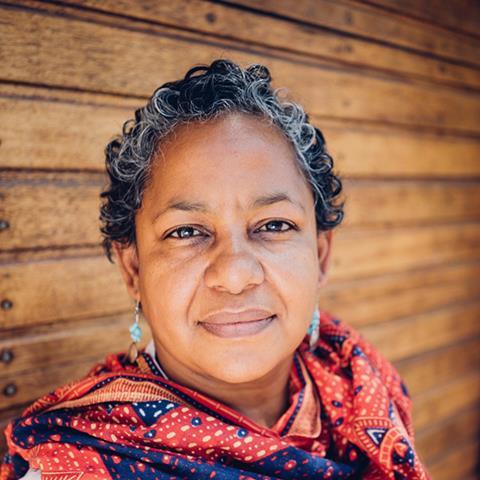
René August is a priest in the Anglican Church of Southern Africa and a reconciliation trainer. She was mentored by Archbishop Desmond Tutu and co-directs The Justice Conference South Africa.
Growing up under apartheid drew me into curiosity about whether there is a way we can be together without it needing to be so painful. I began to realise that: “What does the Bible say about this?” isn’t a helpful question, especially in conflict. Not because the Bible doesn’t have anything to say, rather that whoever is reading it can make it say what they want it to.
Apartheid was theology before it was a political system. Yet Desmond Tutu would read the same Bible and come to a very different conclusion, saying: “We can’t accept apartheid, because the Bible says we must love our neighbours as ourselves.” I concluded that where we read the Bible matters, and who we read the Bible with. I took a group to the Slave Lodge in Cape Town and we read the passages about human enslavement in that place. To see the transformation in the conversations was eye-opening.
Living in a state of hyper-vigilance and anxiety very easily leads to othering people
If we were at a funeral for school children who had been killed by the police, Desmond Tutu would start by saying: “If you are here to support the families who are mourning: welcome. If you are here because you are grieving: welcome. If you are here because you want to spy on us: welcome. If you are here as the security police, ready to shoot us: welcome. We love you, you belong to us and we belong to you. If you want to be on God’s side, come join us. We are on the winning side! And we can end this. God is very sad when he looks at how we are fighting with one another.”
Jesus was born into a violent regime. The Roman Empire was evil in every way, but instead of Jesus descending in a chariot with the armies of heaven, he came as a baby. When we arrive in vulnerability we are in need of others’ help. Vulnerability exposes need and invites community. It is the antidote to power.
For more information see thejusticeconference.com/about
United Kingdom
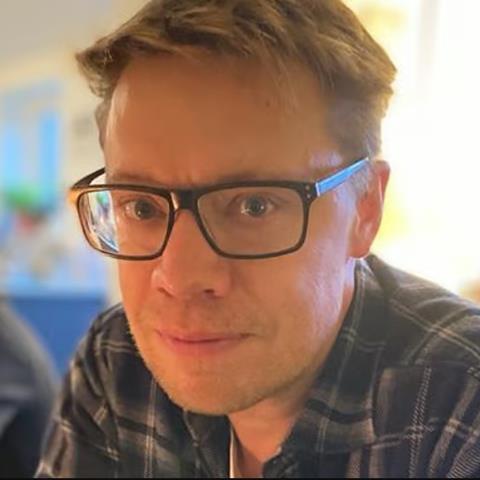
Alex Evans is founder and an executive director of Larger Us, an organisation working for “a ‘Larger Us’ rather than a ‘Them and Us’ world”.
A few years ago I was campaigns director at Avaaz, working on a Remain-leaning campaign for a second Brexit referendum. I became uncomfortably aware that my work was doing nothing to heal the wound of polarisation that had opened up in our politics.
I took a sabbatical and lived in Jerusalem. The polarisation between Israelis and Palestinians was way more extreme that anything I saw in the UK. I became fascinated with the mental health aspect of “them and us” dynamics. Trauma psychologists observed that both Israelis and Palestinians suffered some degree of traumatic stress, constantly living in a state of hyper-vigilance and anxiety. This very easily leads to othering people you consider to be your opponents.
History shows that bullies do fall eventually, especially when we work together
I saw how Cambridge Analytica used psychological profiling and social media micro-targeting to influence people to see the world in “them and us” terms during an election. That convinced me that psychology can be used for ill, but what if it was used to bring us together?
Psychology can be a force for peace. In our training programme we look at how societies and individuals process experiences of loss: when Putin uses a Russian sense of loss to build support for a war in Ukraine, it becomes everyone’s problem. It comes back to the deeply difficult area that perpetrators ultimately need healing too.
There is also the psychology of threat response. Fight, flight or freeze is great for keeping us safe from physical danger, but it can be fired up by social or political issues we perceive as threatening. That can make us worse citizens: less empathetic, more locked into our groups and self-interested. We encourage an alternative response called “tend and befriend”, where people come together to befriend others and build broader social networks.
It’s impossible to talk the talk of peace-building if you’re not also doing your own inner work. Our key message is that to be a change maker, doing that relational work is part and parcel of the deal.
For more information see larger.us
Syria
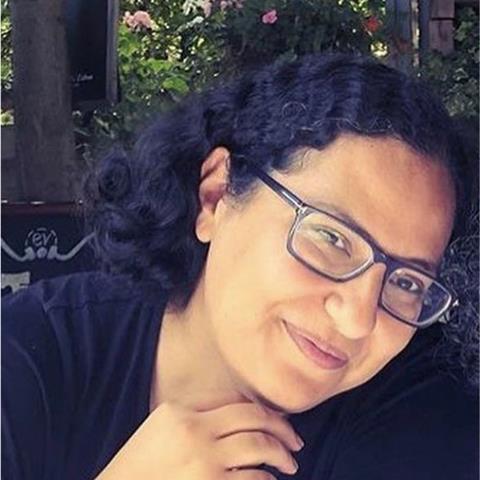
Mariam Tadros is regional director for International Alert, overseeing peace-building programmes in Asia, the Middle East and North Africa.
Between 1990 and 2017 women constituted only two per cent of mediators, eight per cent of negotiators and five per cent of witnesses and signatories in all the major peace processes globally. Yet research shows that women’s participation increases the likelihood of peace agreements lasting 15 years by 35 per cent.
The focus on female peace-builders is a core part of who we are. In our work in Syria, the political environment has presented challenges, but there are now dedicated spaces for women in Syria’s peace process.
Vulnerability exposes need and invites community. It is the antidote to power
Pacing is such an important part of peace-building. The long view is the thing that keeps you going - really believing in that arc towards justice. That doesn’t take away from the day to day frustrations! To do peace-building well, we have to have a 20-to-30 year vision - one, two or three-year cycles of funding don’t get us far.
Jesus modelled how to shift power. He said: “Behold I send you forth as sheep in the midst of wolves, be therefore as wise as servants and as harmless as doves” (Matthew 10:16, NKJ). Through steadfastness, perseverance and wise non-violent activism, what feels unchangeable can be transformed. History shows that bullies do fall eventually, especially when we work together. It’s not an easy road but this is what brings the most sustainable change.”
For more information see international-alert.org































No comments yet